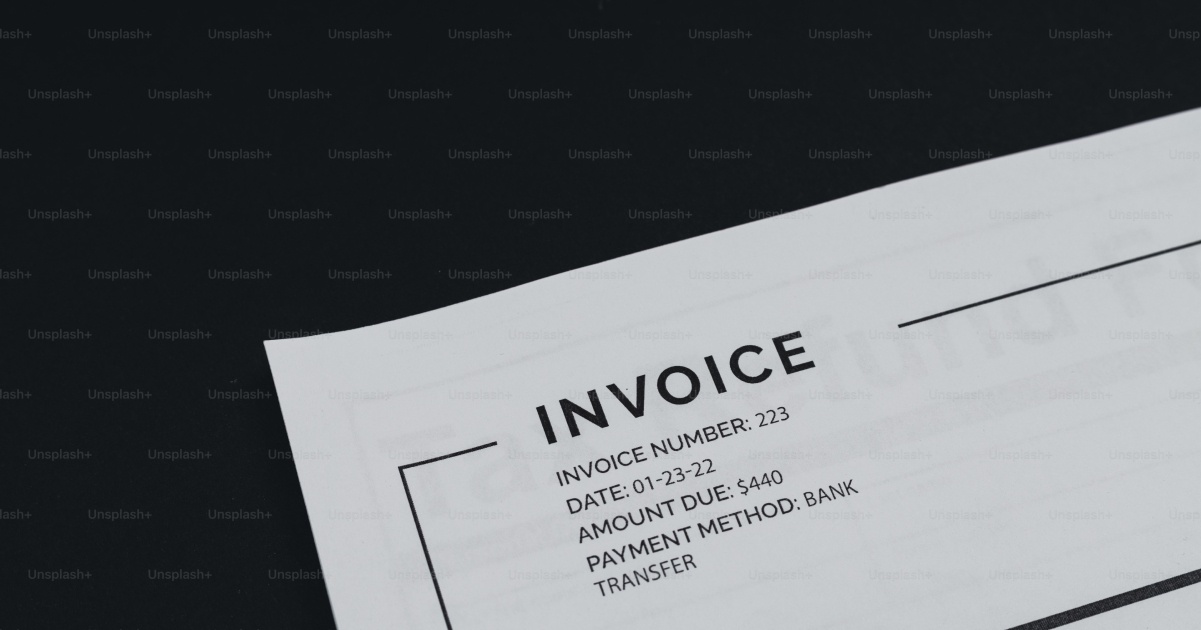
5 Things to Include in a Freelance Editing Invoice
Whether you’re entirely new to freelance editing or have years of experience, knowing how to create an editing invoice is essential. Invoicing is one of the most crucial aspects of your business. It’s how you keep track of all the projects you’ve completed and ensure you get paid on time.
If that sounds stressful, don’t worry – invoicing doesn’t have to be a headache! With a few simple tips and tricks, you can streamline your invoicing process and ensure that you get paid promptly for your hard work. In this post, we’ll discuss:
- What a freelance editing invoice is
- Why it’s essential to send an invoice
- What to include in an invoice
Keep reading and discover how to make invoicing a breeze!
What Is an Editing Invoice?
An invoice is a document that allows freelancers to record the services they have provided for a client and how much these services cost. When a project is complete, the freelancer can use the invoice to request and collect payment from the client.
As a freelancer, you should keep records of all financial transactions related to your work, including any sources of income or business expenses. Invoices are often required for tax purposes, like when completing a tax return.
Why Do You Need to Send an Invoice?
There are several different reasons why it’s important to send your clients an invoice. An editing invoice can help:
- Build trust between you and your clients
- Ensure you get paid the right amount at the right time
- Keep track of your business income and expenses
- Keep track of your tax obligations
- Provide legal protection
- Refine your marketing strategy
We’ll discuss each factor in more detail below.
1. Build Trust Between You and Your Clients
Having a clear process in place for invoicing can help build trust between you and your clients. It shows them that you are well-organized, familiar with professional business processes, and eager to make the relationship run as smoothly as possible.
2. Ensure You Get Paid
Invoices contain all the information a client needs to pay you, streamlining the process and making it far less likely that payment will be delayed. If they have all the information in one place, there’s no excuse for late payment!
3. Keep Track of Your Finances
Invoices are helpful for bookkeeping. They help you keep track of all your earnings, which you can compare with your expenses to determine your profit margins and cash flow. They can also help your clients keep track of their finances.
4. Keep Track of Your Tax Obligations
As we mentioned earlier, you should maintain clear records of all business transactions, including earnings and expenses. For example, in the US, the IRS recommends retaining a number of business documents (including invoices, receipts, and account statements) to support the entries on your tax return.
5. Provide Legal Protection
Invoices can provide freelancers and small businesses with legal protection. A signed invoice is a legally binding document because it records the amount a client agreed to pay you for your services. If they don’t pay you, you can use this invoice as evidence if you need to take further action.
Proper invoicing practices can also help businesses maintain compliance with relevant regulations and tax laws, further enhancing their legal protection and reducing the risk of costly penalties or legal action.
Essentially, invoices ensure that all parties are held accountable.
6. Refine Your Marketing Strategy
By analyzing your invoice records, you can uncover valuable insights, which you can use to refine your marketing strategy and grow your business. For example, you can establish the peak demand periods for your services and which of your services are the most and least popular.
What to Include in a Freelance Editing Invoice
There’s no need to start from scratch every time you create an invoice. It’s best to create a template that you can customize each time you work on a new project. Keep reading to find out what you should include in a freelance editing invoice.
1. Title and Invoice Number
Have the word invoice at the top of the document in a clear font to avoid any confusion about the purpose of the document.
Next to or beneath the title, include the invoice number. Every invoice should have a unique number to allow for easy bookkeeping. You can use a sequential numbering system (and letters if desired) to avoid duplication.
2. Contact Information
Include your business name, address, and contact details (which can be your phone number and/or email address), as well as those of your client.
3. Specific Details of Services Provided
This section should include:
- A description of the tasks or services being invoiced. Place each task or service on a separate line, and be as clear and detailed as possible.
- A supply date (this is the date the services were provided). This is usually different from the invoice date, but if they are the same, make sure to list them on separate lines to ensure clarity.
- An invoice date (this is the date the invoice was provided to the client).
- A payment due date (in addition to the invoice date, you should always define a payment due date; for example, within 14 days.)
- Purchase order number. If your client gives you a purchase order number, always include it in your invoice. A purchase order number, once generated, is a legally binding agreement between you and your client.
4. Total Owed
Total owed, also known as base rate, is the sum of what your client owes you for each service you provided before tax.
5. Payment Instructions
In this section, list the ways your client can pay the invoice and provide any information they’ll need to do so (e.g., your bank details). It’s best to list your preferred payment method first and then move on to any other options. If there are any payment methods you don’t accept, make sure that is clear.
Becoming an Editor
If you’re interested in starting a new career, why not check out our Becoming a Proofreader and Becoming an Editor courses?
Pass both courses with distinction (80% or above), and you’ll be eligible for guaranteed work with our partner company, Proofed. They’ll take care of administrative tasks such as contracts and invoicing, so you can reap the benefits of freelancing without the stress!
Sign up for our free trial today and save 15% when you buy the courses as a bundle!





Your email address will not be published.